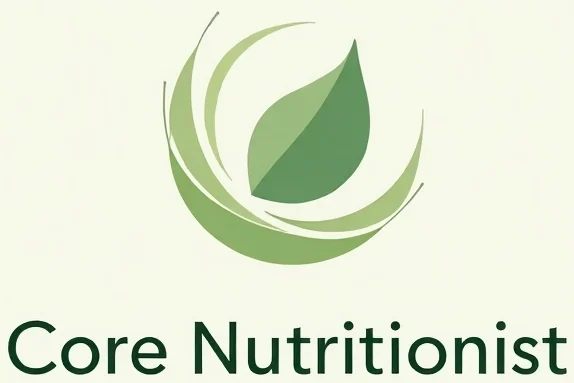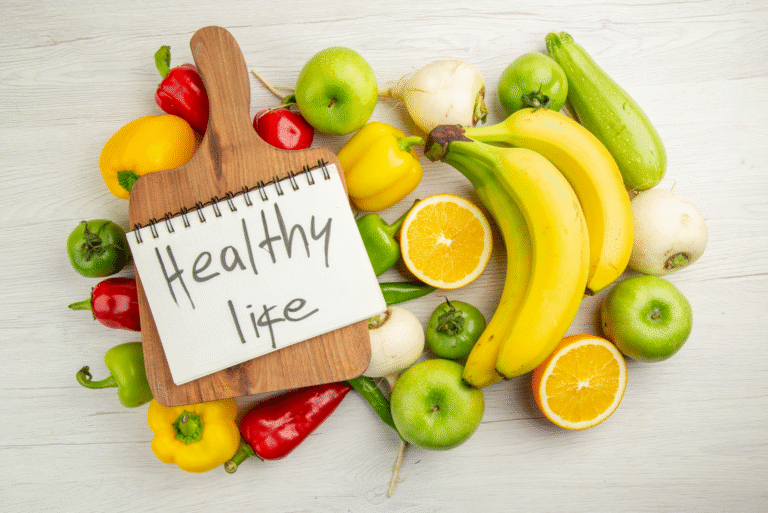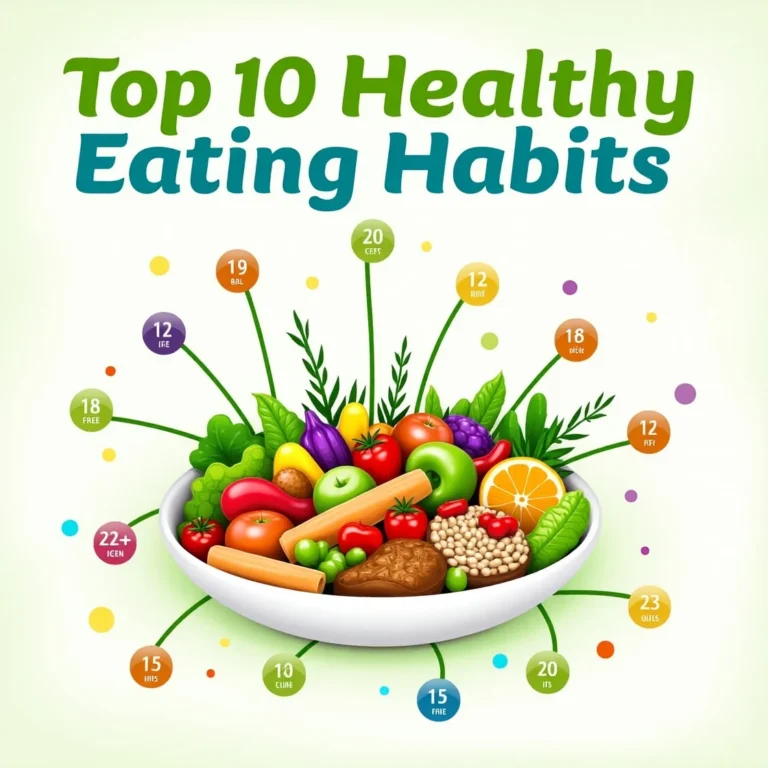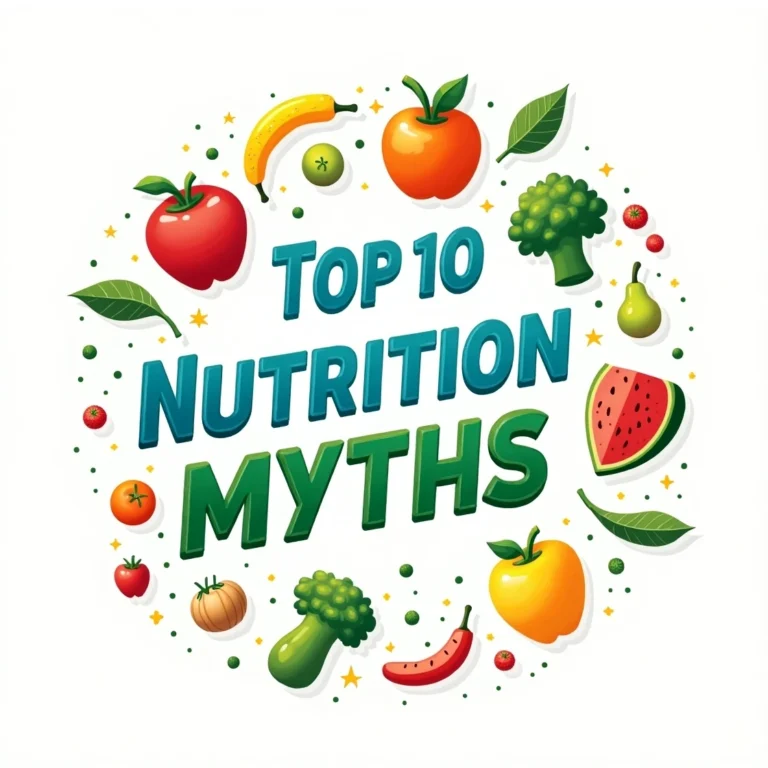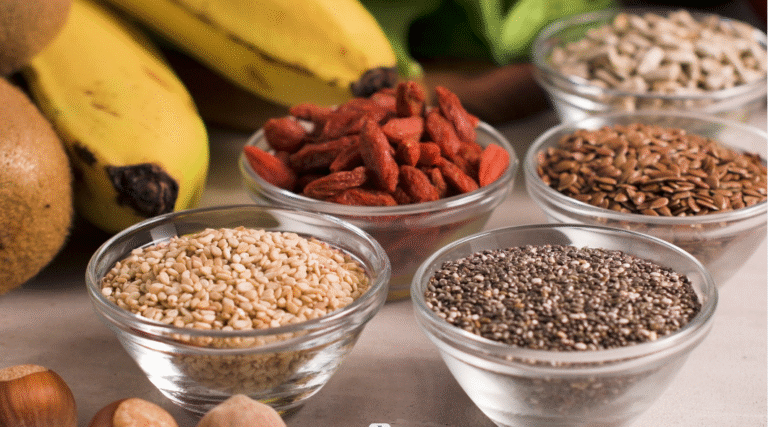Top 10 Essential Nutrients Your Body Needs: A Guide to Optimal Health
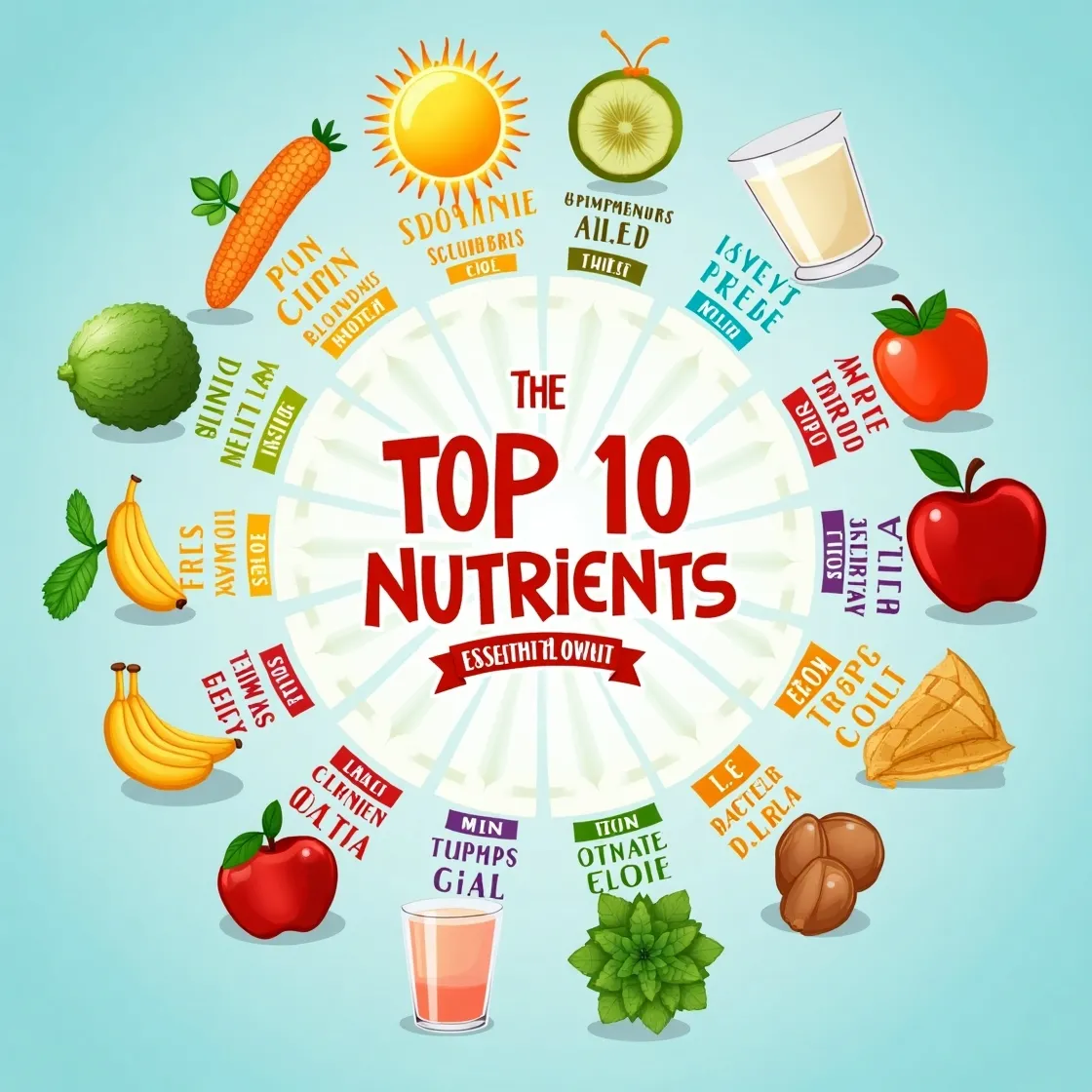
Good nutrition is the foundation of a healthy life. While our bodies need a wide variety of nutrients to function properly, certain essential nutrients are absolutely crucial for maintaining energy levels, supporting organ function, and preventing disease. These nutrients cannot be produced by the body in sufficient quantities, so they must come from the food we eat.
In this article, we will explore the top 10 essential nutrients your body needs, their roles in health, and the best food sources for each one.
1. Protein – The Building Block of Life
Why It’s Essential:
Protein is fundamental for the growth and repair of body tissues, including muscles, skin, hair, and internal organs. It also plays a key role in enzyme production, immune function, and hormone regulation.
What Happens When You Lack It:
Protein deficiency can lead to muscle wasting, fatigue, weakened immune function, and slow wound healing.
Best Food Sources:
- Lean meats (chicken, turkey, beef)
- Fish and seafood
- Eggs
- Dairy products (milk, yogurt, cheese)
- Legumes (beans, lentils)
- Nuts and seeds
- Soy products (tofu, tempeh)
2. Carbohydrates – The Body’s Main Energy Source
Why It’s Essential:
Carbohydrates are the body’s preferred energy source. They are broken down into glucose, which fuels cells and powers bodily functions. Complex carbs also provide dietary fiber, important for digestive health.
What Happens When You Lack It:
Low carbohydrate intake can result in low energy, brain fog, dizziness, and digestive issues due to lack of fiber.
Best Food Sources:
- Whole grains (brown rice, oats, quinoa)
- Fruits
- Vegetables
- Legumes
- Sweet potatoes
Note: Focus on complex carbs and limit refined sugars.
3. Fats – Essential for Hormones and Brain Health
Why It’s Essential:
Fats support brain function, protect organs, absorb fat-soluble vitamins (A, D, E, and K), and are crucial for hormone production. Not all fats are bad—healthy fats are vital.
What Happens When You Lack It:
Fat deficiency can impair brain function, cause vitamin deficiencies, and affect skin and hair health.
Best Food Sources:
- Avocados
- Nuts and seeds
- Olive oil
- Fatty fish (salmon, mackerel, sardines)
- Flaxseeds and chia seeds
Avoid trans fats and limit saturated fats.
4. Vitamins – Micronutrients with a Major Impact
Why They’re Essential:
Vitamins support everything from immunity and vision to skin health and bone strength. Different vitamins serve different purposes:
- Vitamin A: Eye health, immune support
- Vitamin B-complex: Energy production, brain health
- Vitamin C: Antioxidant, immune support
- Vitamin D: Bone health, calcium absorption
- Vitamin E: Antioxidant, skin health
- Vitamin K: Blood clotting, bone health
What Happens When You Lack Them:
Deficiencies can lead to anemia, weakened immunity, poor bone health, skin issues, and more.
Best Food Sources:
- Leafy greens (Vitamin K, folate)
- Citrus fruits (Vitamin C)
- Eggs and dairy (Vitamin B12, D)
- Carrots and sweet potatoes (Vitamin A)
- Nuts and seeds (Vitamin E)
5. Minerals – Key Elements for Body Function
Why They’re Essential:
Minerals help build strong bones, regulate metabolism, and stay properly hydrated. Key minerals include:
- Calcium: Bone and teeth health
- Iron: Oxygen transport in the blood
- Magnesium: Nerve and muscle function
- Zinc: Immune support, wound healing
- Potassium: Fluid balance, nerve function
- Sodium: Blood pressure and hydration (in moderation)
What Happens When You Lack Them:
Mineral deficiencies can lead to brittle bones, anemia, fatigue, muscle cramps, and irregular heartbeat.
Best Food Sources:
- Dairy (calcium)
- Red meat and spinach (iron)
- Nuts, seeds, and leafy greens (magnesium)
- Shellfish and legumes (zinc)
- Bananas and potatoes (potassium)
6. Water – The Most Vital Nutrient
Why It’s Essential:
Water makes up around 60% of the human body and is critical for virtually every bodily function, including digestion, temperature regulation, waste elimination, and cellular processes.
What Happens When You Lack It:
Dehydration can cause headaches, fatigue, dizziness, kidney issues, and in severe cases, organ failure.
Best Sources:
- Drinking water
- Herbal teas
- Water-rich fruits (watermelon, cucumber, oranges)
- Soups and broths
Aim for at least 8 glasses (about 2 liters) of water daily, depending on your activity level and climate.
7. Fiber – The Digestive System’s Best Friend
Why It’s Essential:
Though not a nutrient in the classical sense, fiber is essential for digestive health. It regulates bowel movements, lowers cholesterol levels, and helps control blood sugar.
What Happens When You Lack It:
Low fiber intake can lead to constipation, increased cholesterol, and a higher risk of heart disease and type 2 diabetes.
Best Food Sources:
- Whole grains
- Fruits (apples, berries, pears)
- Vegetables (broccoli, carrots)
- Legumes (lentils, beans)
- Nuts and seeds
8. Omega-3 Fatty Acids – The Anti-Inflammatory Hero
Why It’s Essential:
Omega-3s are a type of polyunsaturated fat that support brain function, reduce inflammation, and promote heart health. The three main types are ALA (plant sources), EPA, and DHA (marine sources).
What Happens When You Lack It:
Deficiency can contribute to cognitive decline, inflammation, depression, and heart disease.
Best Food Sources:
- Fatty fish (salmon, tuna, sardines)
- Flaxseeds and chia seeds
- Walnuts
- Algal oil (vegan EPA/DHA supplement)
9. Antioxidants – The Body’s Defense Against Free Radicals
Why It’s Essential:
Antioxidants neutralize free radicals that can damage cells and contribute to aging and diseases like cancer and heart disease. Key antioxidants include vitamins C and E, selenium, and plant compounds like flavonoids.
What Happens When You Lack Them:
Increased oxidative stress, accelerated aging, higher disease risk.
Best Food Sources:
- Berries (blueberries, strawberries)
- Dark chocolate (in moderation)
- Green tea
- Colorful vegetables (peppers, spinach, tomatoes)
- Nuts and seeds
10. Probiotics – Gut Health Warriors
Why It’s Essential:
Probiotics are beneficial bacteria that support a healthy gut microbiome, which in turn affects digestion, immunity, and even mental health.
What Happens When You Lack Them:
An imbalanced gut microbiome can lead to digestive problems, weakened immunity, and increased risk of allergies and mood disorders.
Best Food Sources:
- Yogurt with live cultures
- Kefir
- Sauerkraut
- Kimchi
- Miso and tempeh
- Probiotic supplements (if necessary)
How to Ensure You’re Getting All Essential Nutrients
Here are some practical tips to make sure your diet is nutrient-rich:
- Eat a variety of whole foods: Different foods offer different nutrients. Diversity is key.
- Limit processed foods: These are often high in empty calories and low in nutrients.
- Stay hydrated: Water helps transport nutrients and flush out toxins.
- Monitor portion sizes: Even healthy foods can contribute to weight gain if overeaten.
- Consider supplements carefully: If you have dietary restrictions, a doctor or dietitian may recommend specific supplements.
Final Thoughts
The human body is a complex and finely tuned system that depends on the right balance of essential nutrients to function optimally. While all nutrients play important roles, the 10 discussed in this article—proteins, carbohydrates, fats, vitamins, minerals, water, fiber, omega-3 fatty acids, antioxidants, and probiotics—are the pillars of good health.
By making informed choices and including a variety of nutrient-dense foods in your diet, you can enhance your energy, strengthen your immune system, support mental clarity, and reduce your risk of chronic disease.
Remember: You are what you eat—so nourish your body, and it will thank you every day.
